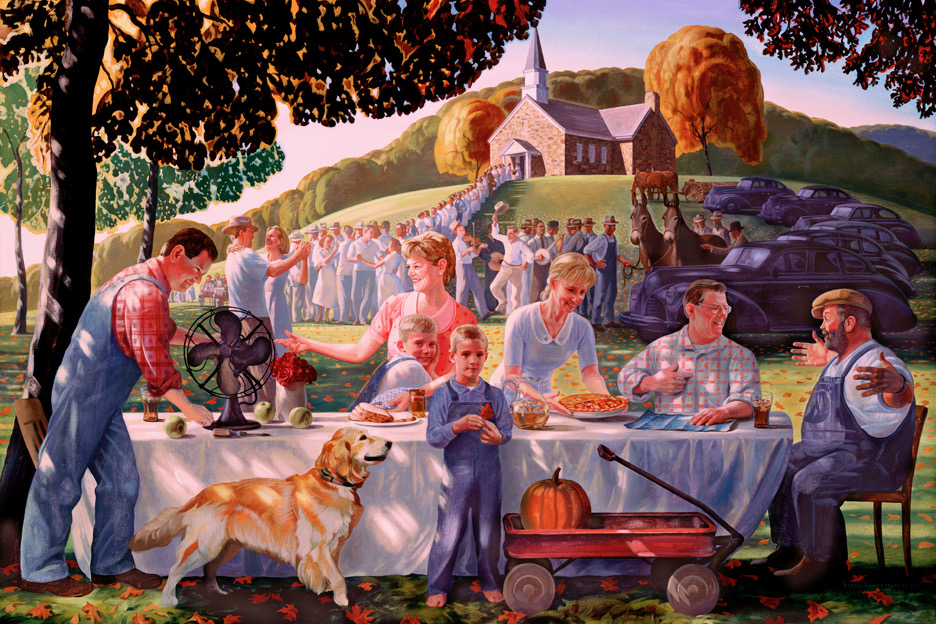Listen to the article
Listen to the session
Listen to the article
If you’ve ever taken on a “read the Bible in one year” challenge, you’ve likely given yourself a pass when you reached the first nine chapters of 1 Chronicles—those long lists of over 900 names tracing the descendants of Adam and the patriarchs. And if your pastor preaches verse by verse, there’s a good chance he’s skimmed quickly through the “hard name begat hard name who begat hard name” sections before announcing, “And now we come to the text for this morning.” Even Paul advised Timothy not to get caught up in “fables and endless genealogies. These promote controversies rather than God’s work—which is by faith.”
And yet, here we are, knee-deep in names and relationships that seem like nothing more than a dry list, occasionally broken up by a mention of Jabez who prayed to be free from pain, a clan of linen workers, or Reuben who defiled his father’s marriage bed. For the most part, it’s a droning recitation of unfamiliar names.
But is it only that?
If you grew up or lived in the rural South, you may be familiar with the tradition of Decoration Day—an annual event, usually in the fall, when families gather to care for the resting places of their loved ones. It’s more than a tidy-up; it’s a reunion. Flowers are placed, hymns are sung, supper is shared on the ground, and a service reminds the living to honor those who have gone before. It’s a time for hugging distant relatives, introducing new family members, sharing stories—a solemn yet joyful reminder that we belong to something larger than ourselves. We are not alone. We carry on.
That is exactly what Ezra was doing when he gathered the people—not only to read the Law, which would end with confession and renewed obedience—but to remind them that they belonged. They were not just individuals who had returned from seventy years of exile; they were a congregation with a unique identity, bound by an everlasting covenant. No, they couldn’t simply pick up where they left off. But neither were they starting from scratch. They had a beginning. “Adam, Seth, Enosh, Kenan, Mahalalel, Jared, Enoch, Methuselah, Lamech, Noah.”
One of the first acts of any conqueror is to erase history—to make the defeated forget who they were, or worse, to rewrite their story. It’s a way to control them. George Orwell once wrote:
“Every record has been destroyed or falsified, every book rewritten, every picture repainted, every statue and street renamed… History has stopped.”
When the Temple was reduced to rubble, and captivity stripped away their identity, the people lost their center. But Ezra—and others—kept the records. And this wasn’t nostalgia.
In fact, nostalgia is the opposite of what Ezra intended. Historian Susan Matt observes that, “In society at large, nostalgia can distort our understanding of the world in dangerous ways, making us needlessly negative about our current situation.” During the Civil War, nostalgia was such a concern that doctors diagnosed over 5,000 Union soldiers with clinical cases—74 of whom died from it. The Army even banned bands from playing “Home, Sweet Home,” and chaplains were cautioned against sentimental references that might trigger more cases.
Ezra wasn’t invoking the past to mourn or romanticize it. He was calling on it to restore something: a sense of identity—as members of a family, a clan, a tribe, and a nation. These people came from somewhere. They weren’t just returnees; they were heirs. A nation defined not by borders, but by belonging. They had produced heroes, artisans, scholars, warriors, and kings. And at the heart of Ezra’s message was this: We are a people. Exile has not erased our identity. We are still a particular people. A peculiar people. A chosen people.
And that will carry us through whatever lies ahead.
So no—it’s not just a dry list of hard names. It is a call to remember, to honor, to affirm our calling. It is a declaration that, as Paul would write hundreds of years later, we are not our own; we were bought with a price.
And underneath are the everlasting arms.
Art by Bryan Haynes
Get The Round Table in your Inbox
Every now and again we send out a collection of our writings, links to our webcasts, and reminders about events. Subscribe to stay in touch.



